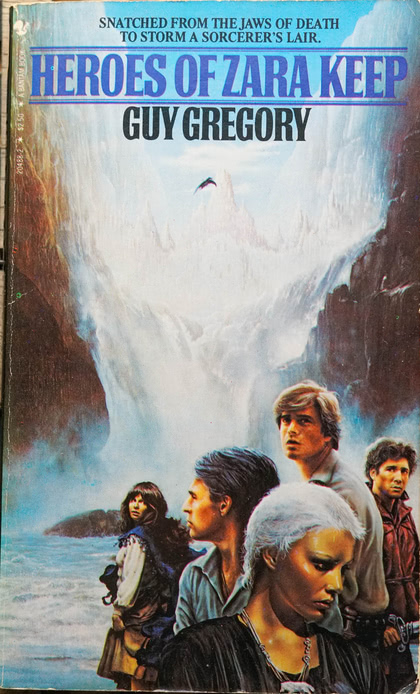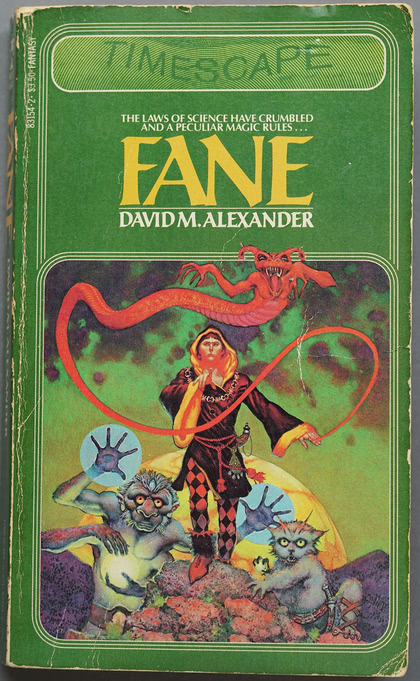SF
Forgotten SF Novels: Mayflies
Kevin O’Donnell, Jr was a prolific SF writer in the Seventies and Eighties, mostly in short-story form, but he also left behind 10 full-length novels, perhaps the best-remembered being the four-volume Journeys of McGill Feighan, which were successful enough that Berkley reprinted his earlier novel Mayflies with an “interesting” new cover:
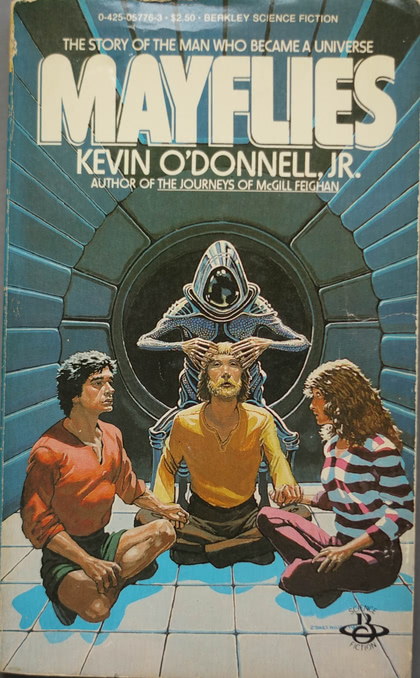
Our Hero was a scientist working on a last-ditch life-support system to keep even the most critically injured alive until they could be treated. In a fit of irony, he ends up being the first test subject when he’s decapitated by a rogue light fixture during a severe earthquake.
Unfortunately for Our Hero, he doesn’t recover, and his living-but-idle brain eventually gets donated to a group working on biological computers, as in “reprogramming a human brain into a supercomputer”. They do such a good job of it that the brain-puter is put in charge of a slower-than-light starship sent to found a colony out among the stars, just in case humanity blows itself up at home.
Unfortunately for the passengers, his mind wasn’t completely wiped, and when he wakes up, the conflict between programming and ego results in a tug-of-war that disables the ramscoop before they get up to full speed. The ship will eventually reach its destination, but it’s going to take a long, long time. As their societies rise and fall, Our Hero struggles against his programmed self for control over the ship, while living vicariously through generations of short-lived passenger “mayflies”.
As I mentioned over on Good Show Sir, the cover art that looks like a stoner party being crashed by a mind-melding alien is actually a sex scene in the book, in which the girl is expertly fingered to orgasm by one of the aliens. Actually, everyone aboard is being probed in some fashion, in an attempt to elicit violent or self-destructive reactions, but our PoV character at that moment apparently drew the short straw.
Note: none of his books are in print or available electronically, which is a shame, since they were all entertaining; I presume there are rights issues which his estate is either unwilling or unable to untangle.
Forgotten SF Novels: Heroes of Zara Keep
The isekai genre that’s more-or-less taken over the Japanese anime and light-novel markets has a long history. You could argue about the precise definition, such as whether the protagonist is required to have been a loser in real life before being transported to another world, and whether or not it’s a one-way trip, possibly involving reincarnation. And whether the other world is specifically based on RPG tropes, including concepts like “levels” and “hit points”.
You could say that Edgar Rice Burroughs invented it in 1917 with A Princess of Mars, but it was certainly a familiar genre trope before Piper’s Lord Kalvan of Otherwhen in 1965, and it was only a minor novelty when Brian Daley brought modern military weapons into the mix in 1977’s The Doomfarers of Coramonde. By the time Joel Rosenberg’s Guardians of the Flame series kicked off in 1983, it was old hat.
But a year before Rosenberg made the idea of living in a D&D world a bit less cool, Guy Gregory’s one-and-done novel Heroes of Zara Keep hit the shelves.
Left to right, that’s Flos, Jason, Lyca, Sax, and Culter. Perfectly ordinary young adults with perfectly ordinary names. Okay, Jason has a perfectly ordinary name, but he compensates for that by being the only one who’s not obviously ordinary, having Very Unusual Hands. By the way, the tiny speck under the author’s name is the massive, threatening dragon that the Big Bad rides, or maybe a pigeon.
It’s… okay, I guess. A generic wizard summons a group of Chosen Ones at the moment of their (mostly foolish) deaths, sets them up with mentors who have exactly the right skillsets, and then when the Great Danger arrives ahead of schedule, cuts short their training and arranges a meet-up in just the right way to cause Our Heroes to fight before becoming besties. Their pretty darn quick journey to Zara Keep to defeat the Big Bad provides precisely the challenges each was trained to overcome, while also providing precisely the situations needed to trigger each one’s PTSD over the manner of their deaths. But not so much that there’s any doubt they’ll make it there in time. Honestly, it took me about a week to re-read it, because I kept nodding off.
The module book wraps everything up neatly, with no loose ends,
and happy endings all around for Our Heroes. The complete lack of a
sequel hook is perhaps the most novel thing about it.
Guier S. Wright III and G. Scott Wright, Jr. share the copyright on this one, and about nine years ago a Guy Wright turned up on an SFFworld forum thread to mention that his dad wrote it, he had a bunch of copies in the garage, and to feel free to email him any questions. That pretty much sums up the Internet’s collective knowledge of both book and author.
Update
I just noticed that all five of Our Heroes are looking in different directions, and none of them are looking at the titular keep or the massive, threatening dragon.
Forgotten SF Novels: Fane
Fane, by David M. Alexander, 1981:
Beyond the stars, a fool’s paradise lies waiting to be saved!
The planet Fane, inhabited by earthlings and native four-armed Fanists, is threatened when the wizard Greyhorn contrives a fiendish plot to conquer the world and enslave its inhabitants.
Greyhorn’s scheme lacks one essential ingredient, so the great wizard sends his bumbling newphew, Grantin, to find it. But when Grantin unwittingly foils his uncle’s plans, he is plummeted headlong into a strange adventure.
Evading bandits on lizards, pleading mercy from talking trees, battling poison-toothed demons, the unwilling Grantin journey through the Weird Lands into the domain of evil where the gorgeous Lady Mara is waiting to be saved…
But to save the Lady, the planet, and himself for the simplest pleasures of Fanist life, Grantin must rise to the occasion— and learn how to fight!
The cover picture is 100% accurate, except for the tights. The back-cover blurb, on the other hand, is batting about 0.300. Among its other problems, there’s a third race with a significant role in the plot (lower right), uncle Greyhorn isn’t the one trying to conquer the world (but he’s willing to help for a piece of the action), Grantin is just sent into town to pick up the essential ingredient from a courier, Mara doesn’t know that she needs saving until quite late in the book, and Grantin isn’t so much interested in saving her as in getting her to undo the mistake he made that sent him fleeing from his uncle’s wrath.
To my surprise, this one’s still in print and available for Kindle, as The Accidental Magician, under the pen name David Grace. The cover art is a bit less accurate (depicting uncle Greyhorn contacting the actual villain through a crystal ball), while the blurb is a bit more, so it balances out.
Is it any good? Mostly for the world itself and Grantin’s two alien allies, Chom and Castor. Grantin, Greyhorn, Mara, and the rest of the humans don’t have much to offer.
Forgotten SF Novels: The Alien
I’ve got floor-to-ceiling bookshelves in two rooms that are crammed with old SF novels. Every once in a while one of them catches my eye, and I give it a re-read. Some are old friends that deserve the attention, while others are basking in well-deserved obscurity.
First up is one that I read back in the late Seventies, after I’d just heard about a new movie called “Alien”. Since I wasn’t really in a position to go see it in a theater, I popped into the local library to try to find a novelization and see what it was about.
They didn’t have it. Instead, I found something called The Alien, and the cover made it pretty clear that there weren’t going to be any spaceships.
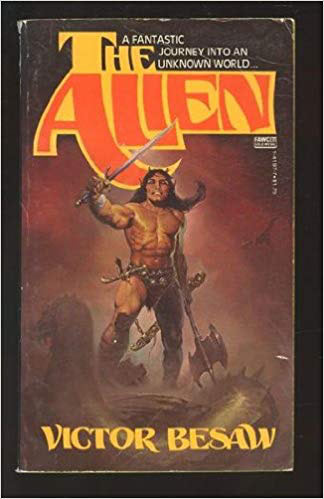
I don’t remember when or where I actually bought a copy, but it was almost certainly out of the same misplaced nostalgia that led me to hunt down a copy of Manly Banister’s Conquest Of Earth (aka The Scarlet Saint), another dusty old library classic.
The Alien was the second, and last, novel by one Victor Besaw, published in paperback by Fawcett in 1979. The Internet doesn’t seem to know a damn thing about him, but I’m inclined to say he lacked the Gift of Names:
“Outside Gelsan on the road to Malkha Voet,
on the third day of the year of Lilkhanflet
Bdengi got himself a strange new thrall…
a small Nyarlethu, scarce five mangi tall.”
That’s how it starts, and before the brief prologue is over, we’ve heard about the Vilarian sun, the Chalkhrondu, the Volsek river, a carriage pulled by delkhators, Bdengi’s wife Verla (who calls him Zhen), some sort of divinity to swear by named Khanophet, his driver Haldor (who calls him vlan), his guard Arlo, and Our Hero himself, the toddler Godranec, fed a nice piece of roasted tharg by Verla after being dropped in the middle of the road by a skaldu bird.
And that’s just the first three pages. I’ve gotten more consistent names out of a pile of Boggle dice. The world-building is just as consistent, which is to say not at all. Every few pages, something happens that introduces a half-dozen more boggle-words, another strange race, and a minor challenge for Our Hero to overcome. It makes for a rather quick read, and it isn’t a long book to begin with.
When he’s fully grown and conveniently armed with a magic spear (given to him by his master to destroy in the forge), a noble’s sword (given to him by the Halzhengim lizard-men, along with some advice from their tribe’s shogan on how to find his people), and a mighty axe (made by Our Hero in his master’s forge, which he conveniently had to himself that night), he murders the kitchen overseer Kula (as promised 40 pages earlier) and sets out for his freedom through the mysterious and deadly wierwood.
About a hundred pages later, Our Hero defeats a mighty cave bear, is reunited with his people, learns his true identity, and gains a beautiful princess as his wife, all in about ten pages. The end.
The book is stuffed with Tiny Adventures that are over almost before they start, each involving a new and different and vaguely-sketched element of this fantasy world, with no real thought to fitting them together into a coherent whole. Most disasters are averted by the convenient fact that his horns have a Spidey-sense, alerting him to plot points. It’s like reading an ADHD teen trying to imitate Edgar Rice Burroughs.
These days, it would be a 14-book indie series on Kindle, with each volume over 300 virtual pages long, but Besaw crammed it all into one, and that was that.
Worth reading? Only as a snapshot of the sort of brisk pulp fantasy that fed a hungry young SF market in that era. No sex, no gore, no character development, no world-building, just a nondescript protagonist who overcomes every obstacle in a few paragraphs and gets the girl.
On a related note, Good Show Sir collects terrible SF covers…
Harry Dresden Christmas story
Missed this when it came out.
"Call Kris Kringle a liar on Christmas Eve one more time."
"L—"
Faces of Who
A bit too busy for a background screen, but still plenty of fun.
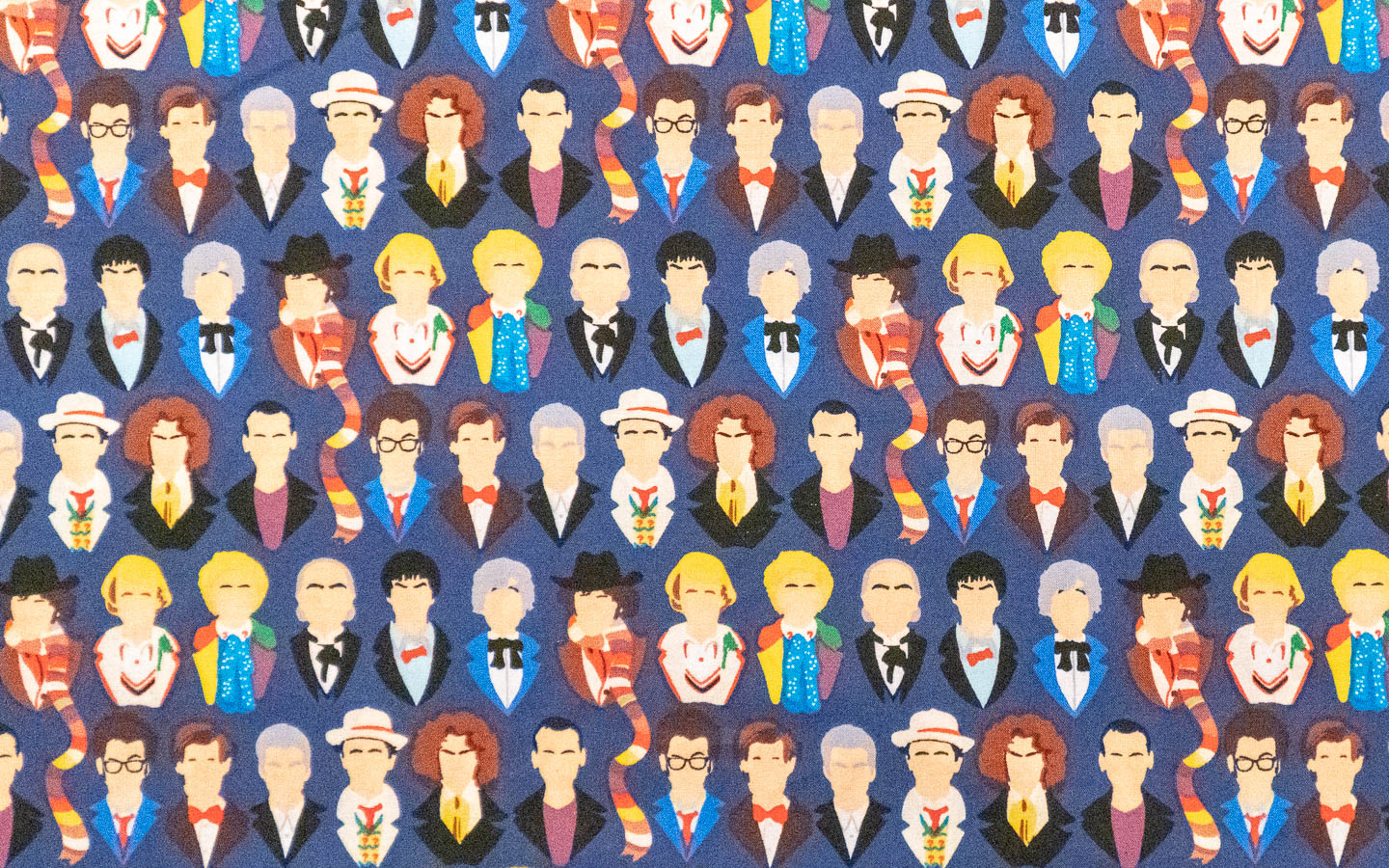
Before I do anything with this fabric, I’m going to press it, set it up on my copy stand, and shoot it with a flat-field lens to capture the design. This quick grainy snap doesn’t do it justice.
Doctor Good news, Bad news...
The good news is that last week’s trailer was wrong:
not only was Amazon Prime not the villain, but everything bad was caused by the unprincipled actions of a terrorist luddite in a labor dispute over automation taking jobs, or as we call them, “A Typical Leftist”. Corporate management might not be very bright, but they weren’t eeeevil.
The bad news is that that was all of the good news.
Also, no trailer for next week, just a warningpromise that there
are only three more episodes (and no Christmas episode).
And, yes, she’s thrusting with the sonic again…
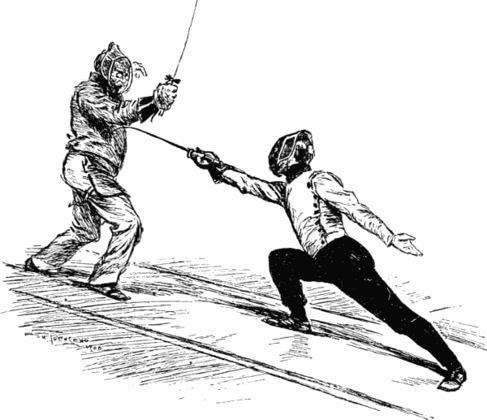
“Oh, the pointing again! They’re screwdrivers! What are you going to do, assemble a cabinet at them?”
Action!
“This doesn’t make sense!”
"That we're being chased by lingerie space pirates, or that
our pilot is a sex toy?”
“That the sex toy is a better pilot than I am!”
"She's probably just had more stick time."
“Not funny. Why does her programming include combat evasion tactics?”
"Maybe she's playing hard-to-get, who cares. Can we focus on
this problem?”
“Right. Killer robot trying to cripple the ship. How long have we got?”
"Two minutes, tops. And if it goes straight for the drive
once it’s inside…”
“…then we’re toast. Okay, I distract, you smash.”
